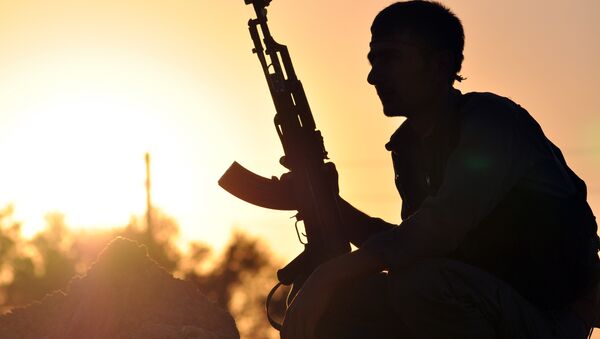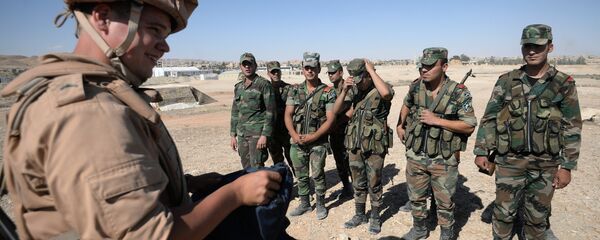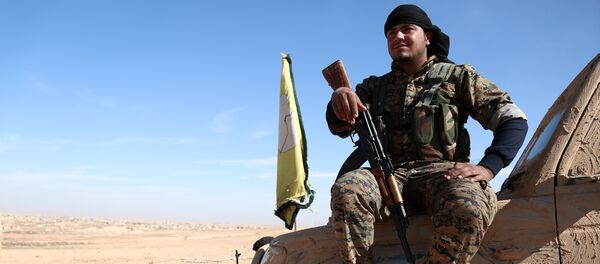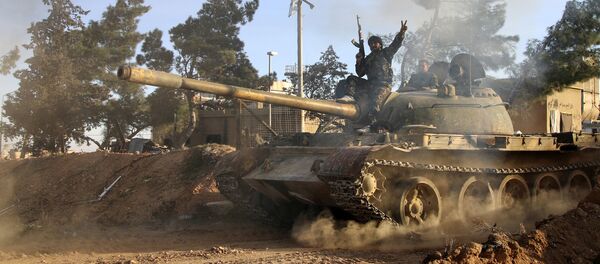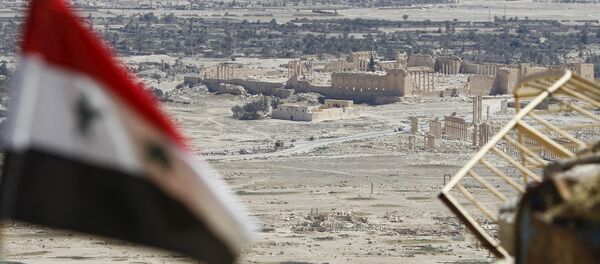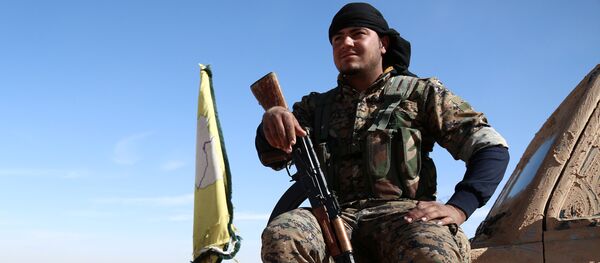"Obama’s White House worked for months on a plan to seize Raqqa. Trump’s team took a brief look and decided not to pull the trigger," reads the title of The Washington Post's lengthy article on why Trump's team turned down Obama's plan to liberate the Syrian city from terrorists.
The military operation of the previous US team, which they had been working on for a long while, came down to using the Syrian Kurds as their allies in the liberation of Raqqa, arming them for the assault "with armored vehicles, antitank weapons, Russian-made machine guns and mine-clearing equipment."
The decision however risked very serious diplomatic consequences with Turkey, who, the previous administration knew only too well, "would be furious, as the Turks viewed the Kurdish fighters as terrorists and their No. 1 enemy."
"The Pentagon needed to find local partners in a hurry, and the Syrian Kurds stepped forward. The budding US battlefield alliance with the Kurds carried big strategic risks. The Kurdish fighters who volunteered to help the Americans had ties to the Kurdistan Workers’ Party, or PKK, which the Turkish and US governments considered a terrorist group," the outlet explains.
Thus moving forward with the plan would have further "put the United States in the unacceptable position of supporting allies of a terrorist group that was carrying out mass-casualty attacks on a NATO member," it says quoting US high-ranking officials.
Nevertheless, the plan was handed over to Trump's team.
"Instead of running with the plan, Trump’s national security team deemed it wholly insufficient and swiftly tossed it," the newspaper says.
Trump officials were dismayed that there was no provision for coordinating operations with Russia and no clear political strategy for "mollifying the Turks", nor were there contingency plans if the Kurdish attack stalled.
“What bothered us most of all was that there was no Plan B,” the Trump officials said.
"To the Trump team, it seemed that Obama administration officials had delayed authorizing the plan because they knew it was inadequate and did not want to be held responsible," the official added.
Commenting on the action of the new US administration, Russian defense analysts suggested what else might be behind the decision.
While President Trump ordered his new defense secretary James Mattis to bring him multiple options on the liberation of Raqqa, Russia's defense analyst Vladimir Evseev suggested that the final US plan will be not involve carrying out an assault on the city but blocking the terrorists, similar to the scenario of the liberation of the eastern Aleppo, carried out by the Syrian government army with the aerial support of Russia.
Washington might take a new look at the fight against terrorism in Syria, focusing more on cooperation with Russia, he further suggested. One of the possible approaches could be the encirclement of the Daesh de-facto capital.
"With regards to Trump's decision on Raqqa, it means he understands that his predecessor lacked a deep enough understanding of the situation on the ground," he said.
The defense analyst further explained that the Kurds initially have no plans to retake this city, as they don't need it. They do, however, have an interest in the territories to the north, he said.
The expert also noted that further coordination between Russia and the US, the setup of a joint center of operational planning and joint airstrikes on the rebels would be a vital step in the fight against terrorism. It would have allowed encircling Raqqa through the efforts of the Syrian Kurds and the Syrian government army.
It would also allow Trump to find a compromise with Turkey as it will be impossible to maintain former relations with Ankara while providing assistance to the Syrian Kurds, he said.
Similar view was echoed by Russian military expert Ivan Konovalov, who said that the only way for the US president to liberate Raqqa is to join forces with Russia and Damascus on the ground.
"The Syrian army's main offensive is the only way [to accomplish this task]: the capture of Palmyra, the liberation of Deir ez-Zor and then the advance on Raqqa. And [for Trump] that means working with [Syrian President Bashar] al-Assad and with Russia," Konovalov, Director of the Center for Strategic Trends Studies earlier told Radio Sputnik.
Meanwhile, Member of the Federation Councils' (the upper house of the Russian parliament) Foreign Affairs Committee Igor Morozov told Izvestiya that Russia is expecting the US president to take practical steps to strengthen the coordination between the US and Russia in the fight against terrorism.
"He has his defense secretary, one of the best experts in waging of war in the Middle East. I think, the president will make his decision based on the advice of such an expert. For now, we'll be waiting for when the US is ready for talks with the Russian Defense Ministry on the setup of further coordination of our efforts," he finally added.
Never miss a story again — sign up to our Telegram channel and we'll keep you up to speed!

